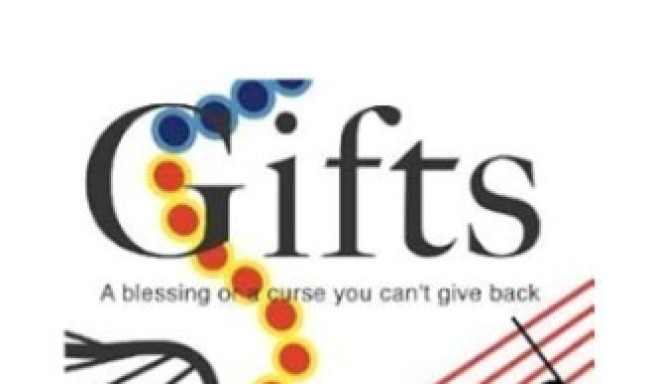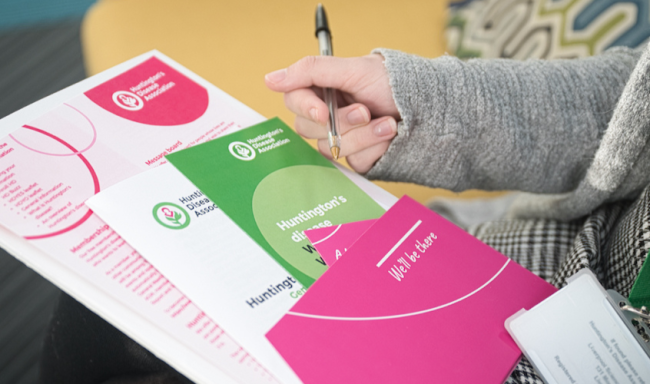We are helping to recruit for two studies from the University of Hull looking at eating and weight loss in Huntington's.
The University of Hull have two studies: the first looks at the psychosocial attitudes towards eating, and the second is trailing out an eating aid for those who are symptomatic to test efficiency to feed easily and safely.
The HD-EAT Pilot Study
University of Hull
In exploring weight loss in Huntington's disease, Huntington's disease professionals and service users were interviewed to learn more about attitudes towards weight loss in Huntington's and common treatment approaches. These two groups of interviewees co-produced a new self-report questionnaire, the Huntington’s Disease Eating Attitudes Test (HD-EAT), to assess potential deficits in eating abilities and behaviours. This study will compare results on the HD-EAT questionnaire with results on other popular food and eating questionnaires, and measures of quality of life.
Study aims
- To measure different psychosocial aspects of Huntington's disease patients’ attitudes towards eating using an online battery of mood and eating questionnaires.
- To pilot an online version of the Huntington's disease Eating Attitudes Test (HD-EAT), a Huntington's-specific questionnaire on eating behaviours.
What does it involve?
Participants will be asked to complete a questionnaire covering general psychological wellbeing and attitudes towards food and eating, including both validated and established questionnaires, as well as piloting the Huntington's Disease Eating Attitudes Test (HD-EAT), a Huntington's-specific eating questionnaire.
Who can take part
The previous research study conducted by the same research team based on Enroll-HD data and therefore recruiting participants who are part of Enroll-HD means that these populations are aligned in terms of the inclusion and exclusion criteria, making the findings of the database review valid and applicable to the research population.
However, potential participants who meet the following criteria may be eligible for recruitment to the study.
Inclusion Criteria:
- Aged 18 or over at the time of recruitment.
- Genetic confirmation of the Huntington's disease gene expansion, defined as a CAG repeat length of ≥40 CAG repeats on the long allele. This information will be self-reported by the prospective participant.
How to get involved
Facilitating Effective Eating with DoddleBags: FEEDhd
University of Hull
This is an interventional study, participants will be given a new feeding aid (DoddleBags) starter set worth £85 to test at home which you are able to keep regardless of the results of the research. These bags are an existing product and all safety information can be provided, you will also be instructed on how to use the DoddleBags. The ease-of-use and suitability of the DoddleBags will be assessed through a food diary and semi-structured interview. The psychosocial impact of the products on the participant will be measured using a small battery of self-report measures.
Study aims
This research will assess the acceptability of a proposed solution to the practical barriers that Huntington's creates when eating; namely, the reduced ability of a person showing symptoms of Huntington's to feed themselves easily, safely, and effectively. It will evaluate the impact of using DoddleBags on participants’ attitudes towards mealtimes and eating, using a short battery of mood and eating questionnaires
Who can take part
- Aged 18 or over at the time of recruitment
- Genetic confirmation of the Huntington's gene expansion, defined as a CAG repeat length of ≥40 CAG repeats on the long allele
- Chorea, uncontrollable bodily movements, to the extent that it, in the opinion of the participant, inhibits normal or typical use of an eating utensil such as a fork or spoon
AND/OR - Cognitive issues that make it impractical for the participant to engage in self-feeding behaviours in a safe and effective manner, perhaps but not necessarily requiring the input of a carer or companion to feed the participant.
Exclusion Criteria:
- Failing to meet the inclusion criteria.
- The presence of a pre-existing neurological or movement disorder that could mimic, mask, or otherwise occlude the symptoms of Huntington’s Disease.
- Current use of DoddleBags as a feeding aid outside of this research.
- Ability to regularly self-feed in a safe and effective manner rendering the integration of DoddleBags into one’s lifestyle moot.
- Use of a mandated/recommended diet that would be incompatible with DoddleBags, such as mandated use of non-pureed or non-soft foods.
- Inability or unwillingness to engage with any specific aspects of the research, including completion of the food diaries, interviews or questionnaires, as well as being unable to provide informed consent.
How to get involved
Participants will be interviewed, complete questionnaires and use a food diary for a week to establish a baseline. They will then complete a food diary while using the DoddleBags as much as they wish to for 11 weeks before completing the questionnaires and being interviewed again.
Please email Callum on c.schofield-2019@hull.ac.uk
The study will close 31 October 2025
Get involved in other studies
If you want to find out more about taking part in free and paid research studies or see the results of past studies that our community have been involved in, please visit the page below.




